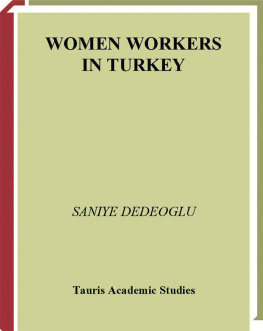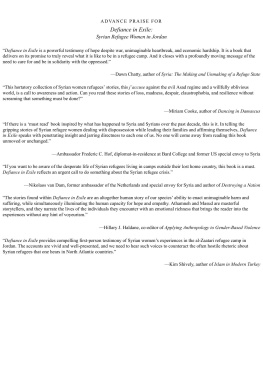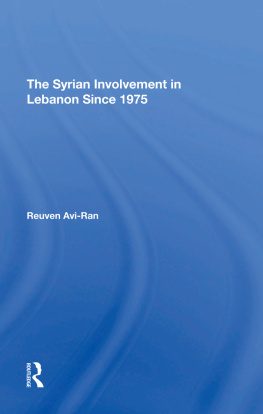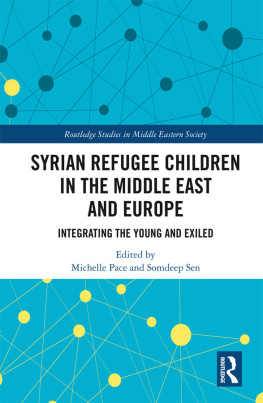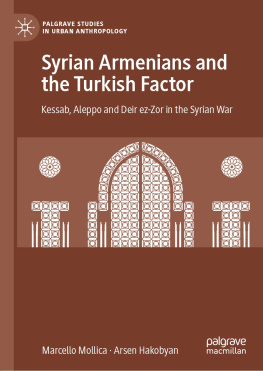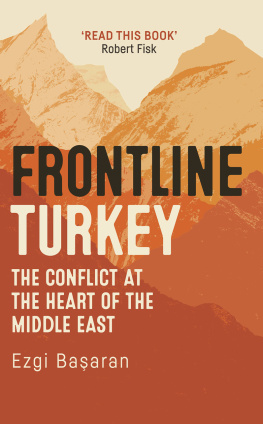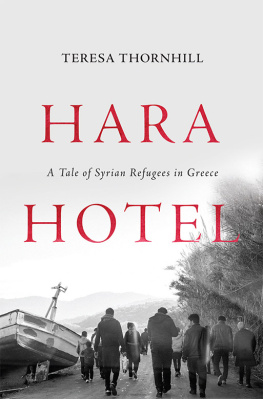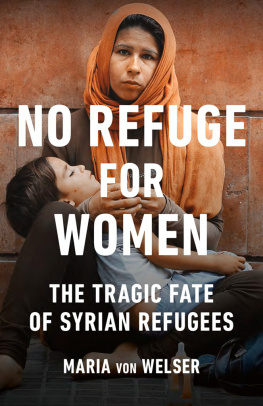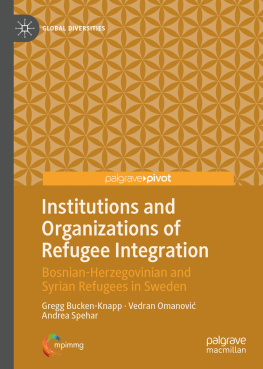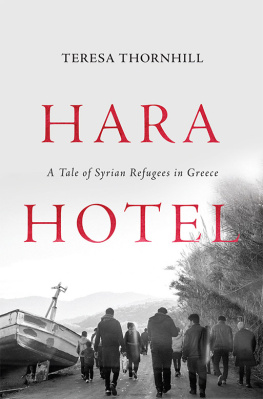Syrian Refugees and Agriculture in Turkey
To my beloved Aye Defne
Syrian Refugees and Agriculture in Turkey
Work, Precarity and Survival
Saniye Dedeoglu
Contents
Figures
Turkeys map of cash crops and demand for seasonal agricultural workers
Seasonal agricultural tent settlement in Adana
A group of seasonal agricultural workers at work
A group of Syrian workers planting cauliflower in Adana
Agriculture work by gender and age groups
A group of women workers in Adana
Syrian women workers in Adanas fields
A woman cooking for her children near her tent
Syrian womens marital statues and employment
Children packing onions
A boy picking cotton with his mother
A group of workers in a field
A sample of a wage card
A worker camp site
Inside a tent and food preparation
Young children having a nap in a tent
Tables
Sources of Labour for Recruitment in Adana
Methods for Worker Recruitment
The research I undertook for this book had started long ago before it came into life, and it has opened a new window for me to understand the life-worlds of seasonal agricultural workers in Turkey. Without a doubt this is an unjust and unequal world full of contradictions and conflicts. In this chaos and inequalities, labour seems to be the only medium to comprehend the lives and survival of many families trying to make a living at the edge of global economies. As a researcher, I have always aimed to bring out womens voices and views by using the research tools provided by interdisciplinary fields, such as gender and migration studies. This pursuit has also tended to centre on womens work practices and gender relations, which shape the very nature of the practice of earning a living. This time, my projection was not only on Syrian women but also on Syrian agricultural worker families and children.
Having this vantage point has also enabled me to analyse not only the life-worlds of women but also the ways in which women shape the political, social, cultural and economic changes taking place in the societies in which they live. Thus, it is always important to understand not only the socio-economic transformations through the lenses of gender and migration studies but also the role women play in these grand transformations. That is why this book chooses to focus on one segment of economic life, that is agricultural work, in which women seem to be quite invisible, with an aim to unleash the gendered aspect of habitus, even in the least expected areas.
Together with the arrival of a large number of Syrians, Turkey is home to the largest Syrian refugee community in the world and the agricultural sector offers work opportunities for vulnerable Syrian refugee families. This book exposes the fast-changing relationship between seasonal agricultural production and the work practices of Syrian refugees in Turkey. Through close ethnographic study I carried out over four years with nearly 1,000 people, the book illuminates how the increasing number of incoming Syrians results in the precarization of the workers particularly women and children. I examine Syrian families working and living conditions with a special interest in the dynamics of how they utilize the labour of women and children to survive and have access to work.
I conducted an in-depth study of the Syrian community at a time when the state apparatus is hostile to research on the subject; the material in this book is unique and offers an insight into remote agricultural sites that are invisible to many. It is an analysis of the precarization process of Syrian labour in an industry that wants to attract the most vulnerable people into the workforce. By focusing on the intersectional vulnerabilities and the context-dependent precarization, the book argues that the commercialization of agricultural production and the increasing use of waged labour bloom antagonistic encounters of different ethnic, cultural and religious groups in rural Turkey.
The book is the result of a string of research and fieldwork I undertook between 2015 and 2019 to examine the lives of seasonal agricultural workers in different parts of Turkey. In this endeavour, I worked with different institutions and people, but among others, the Development Workshop (DW) Cooperative has been the home of that string of research. I thank DW and its team for allowing me to observe the living and working experiences of seasonal agricultural workers and to go after the questions I sought to answer. I also thank Kurtulu Karain for sharing his photo to be the cover image of the book.
My special thanks also go to Asl ahankaya for being with me in each and every step of the way. I thank my colleagues at the University of Mugla Ummuhan Gkoavl, isel Ekiz Gkmen, Aysun Danman and Bilge entrk for making life bearable and lighting it in the difficult times of the Covid-19 pandemic and of the writing process. Solidarity endures in unusual ways. My family has always provided me with unlimited support, and it would not have been possible for me to write this book without their support and guidance. My daughter has been the cheerer when I needed a little boost to go on with the writing. My utmost appreciation goes to all these people.
Finally, to the seasonal agricultural worker families who generously opened up their homes and hearts to me. No words of thanks are enough. I only hope that I have managed to remain somewhat true to their perspectives and stories, and that these perspectives will find their way into broader debates about the issues of refugees, gender and social integration in Turkey and strategies for advancing womens and childrens interests in general.
1
Introduction
This study is an account of Syrian refugees involvement in seasonal agricultural work in Turkey, a site of precarization of labour markets, and specifically womens and childrens central role in a work regime that continuously seeks paths towards bonded labour. It explores the relationship between labour supply and demand in Turkeys seasonal agricultural labour markets, which are continuously geared towards tapping into the most vulnerable sources of the labour pool to reduce production costs. The book seeks mainly to answer the question: under what conditions does precarization occur for workers in Turkeys agricultural labour? It also follows the ways of how womens and childrens labour has played a central role in the precarization of Syrians in a work regime that continuously seeks paths to bond labour. The material illuminates the strategies and responses of both the poorest labour segment (Syrian refugees) and other actors, especially labour intermediaries (dayba or elci in Turkish). It also explores the strategies employed in agricultural production in general and examines the contribution of migrant labour to the competitive strength of the Turkish seasonal agricultural sector in global food markets.
Sharing the basic premise of Castelss analysis of migratory processes in International Human Mobility: Key Issues and Challenges to Social Theory (2015), which are shaped by both macro-social structures and the actions and perceptions of affected populations, migrants and non-migrants, I argue that global agricultural production relies increasingly on strategies that attract diversified forms of labour with intersecting vulnerabilities and on the adaptation of labour control practices that generate a form of bonded labour. The concerted efforts of the actors involved in seasonal agricultural production in Turkey to find and retain cheap sources of labour exploit Syrian workers, and Syrian refugees also hold onto their precarious agricultural jobs by integrating the most vulnerable members of their families into the workforce, that is, women and children.



